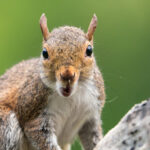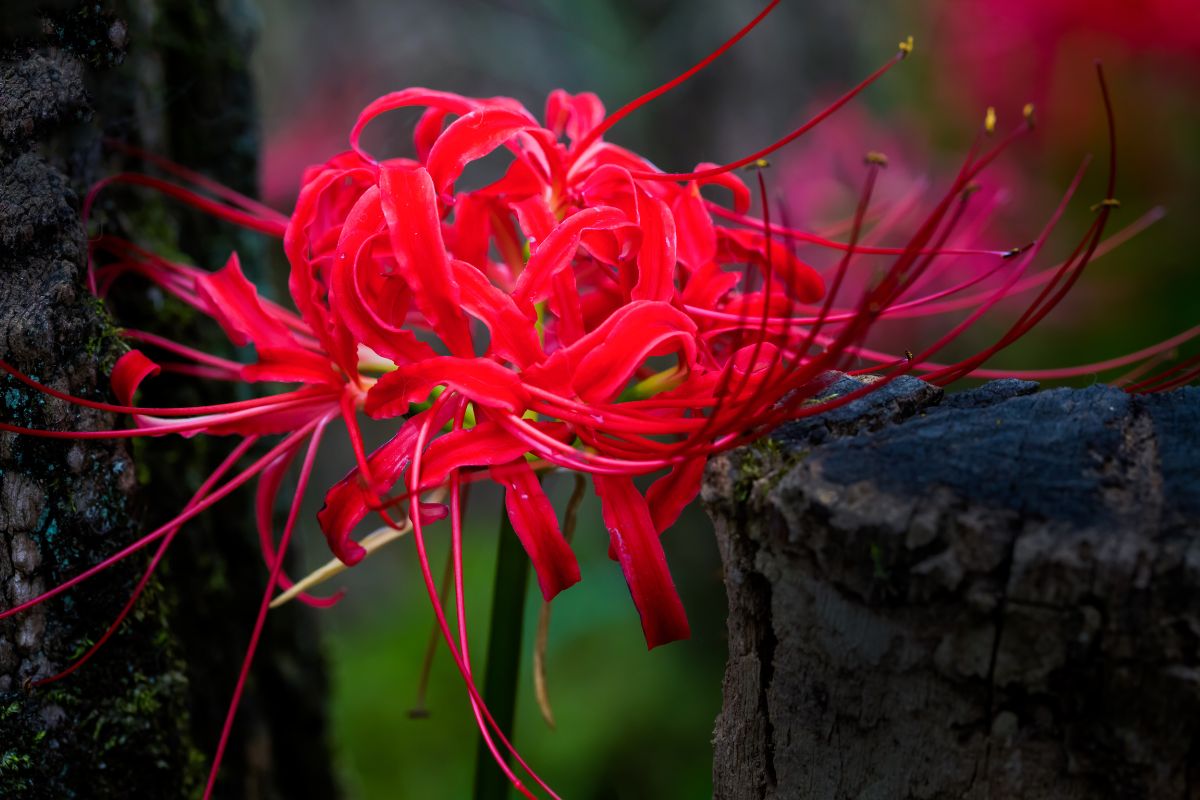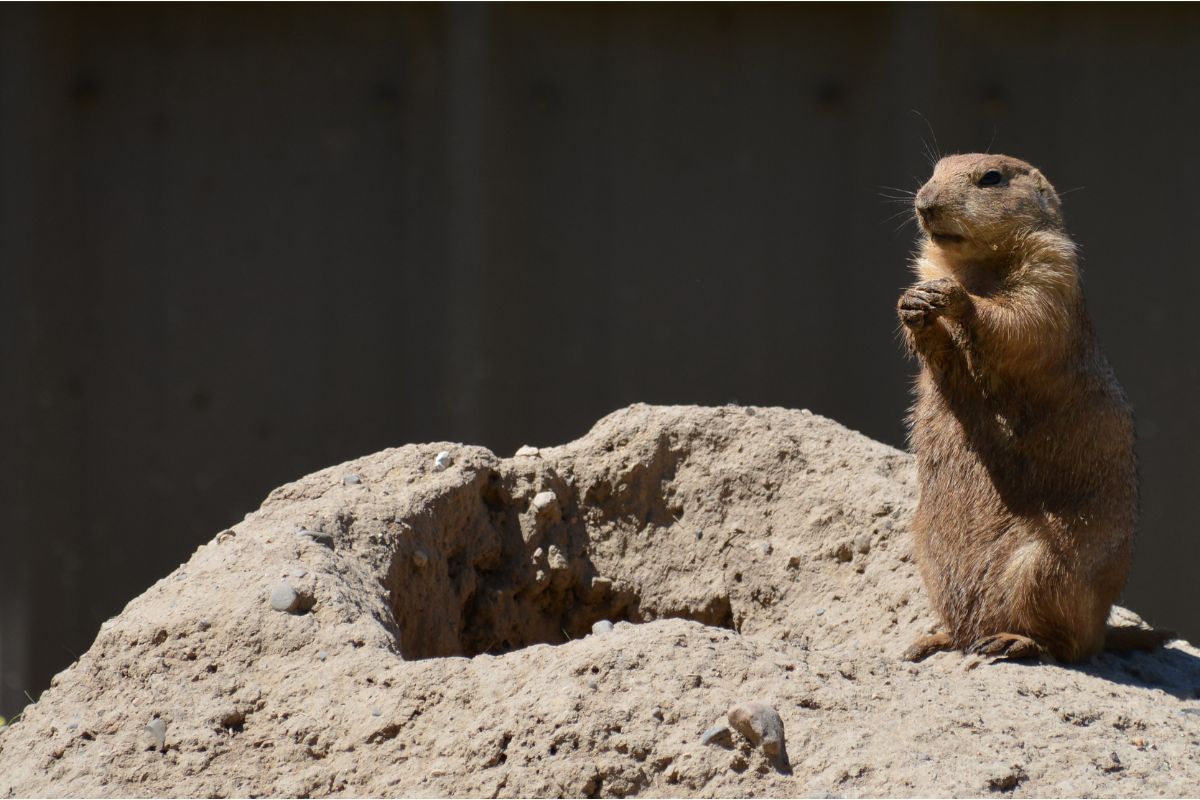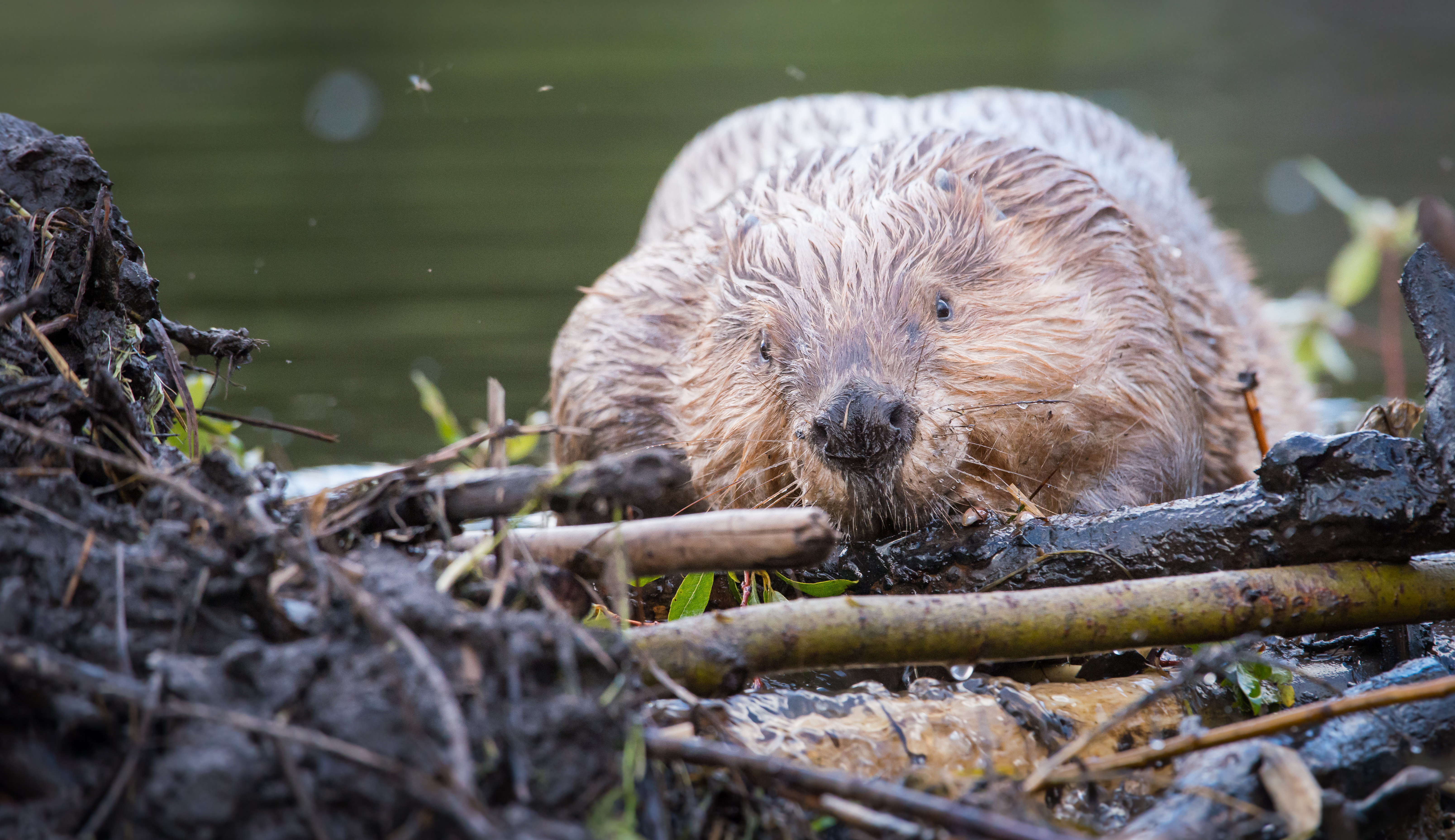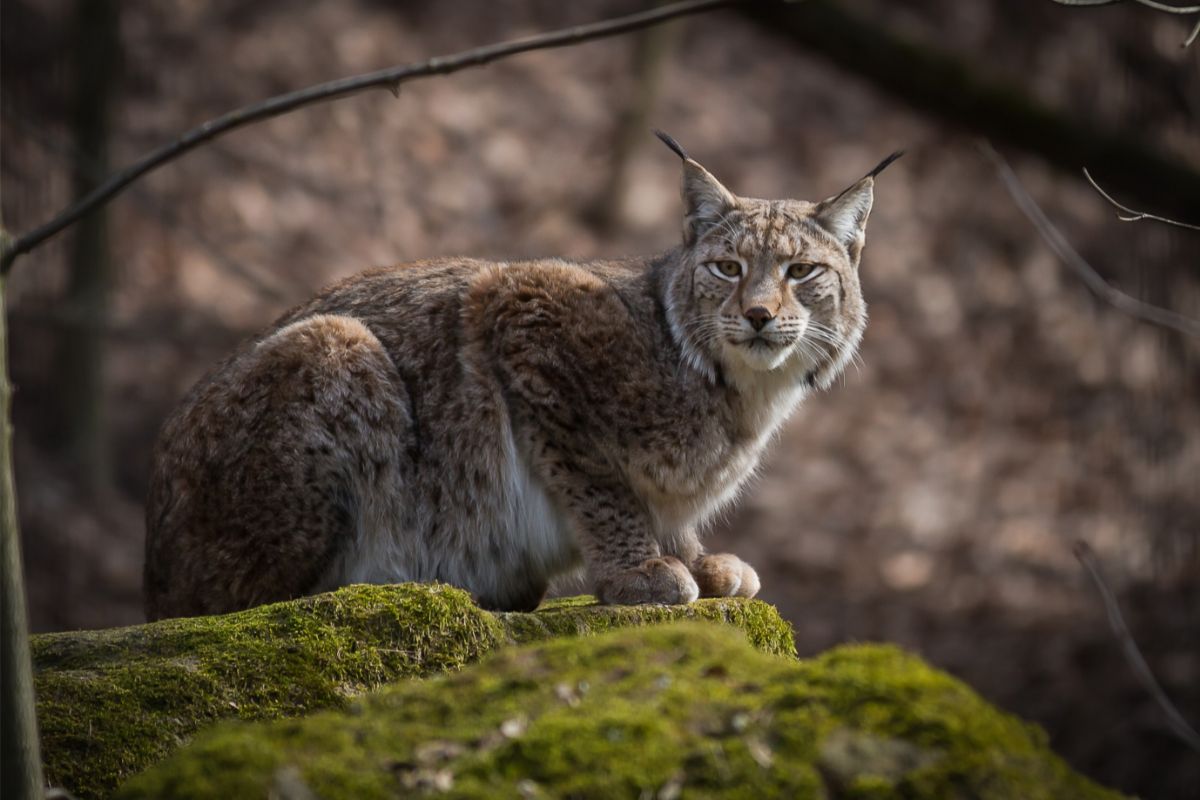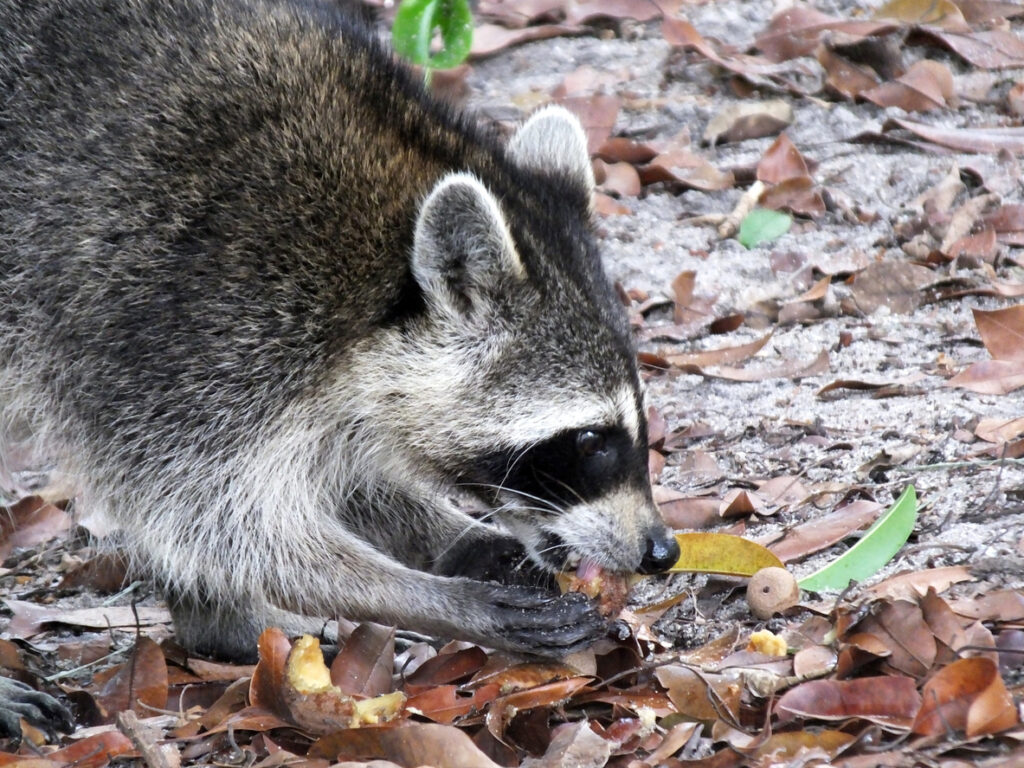
Diet and Eating Habits
So what exactly do raccoons eat? In rural and woodland areas, raccoons stick to a more natural diet. These clever animals forage for fruits, nuts, berries, and vegetables. Their agile paws help them dig for insects like beetles and worms, which comprise a significant portion of their protein intake. Raccoons are also excellent at catching small prey like frogs, fish, and crayfish, especially in areas near water sources.
Raccoons living near rivers or lakes are known for their love of aquatic creatures. Crayfish, frogs, and small fish are regular parts of their diet, making raccoons efficient hunters in these environments. In addition, they frequently raid bird nests, feasting on eggs and occasionally young birds.
Regarding fruit, raccoons have a particular fondness for apples, berries, and acorns, which provide vital nutrients. During the fall, they gorge themselves on high-calorie foods to build up fat reserves for winter, ensuring survival through the cold season.
Urban Raccoon Diet: The Ultimate Scavengers
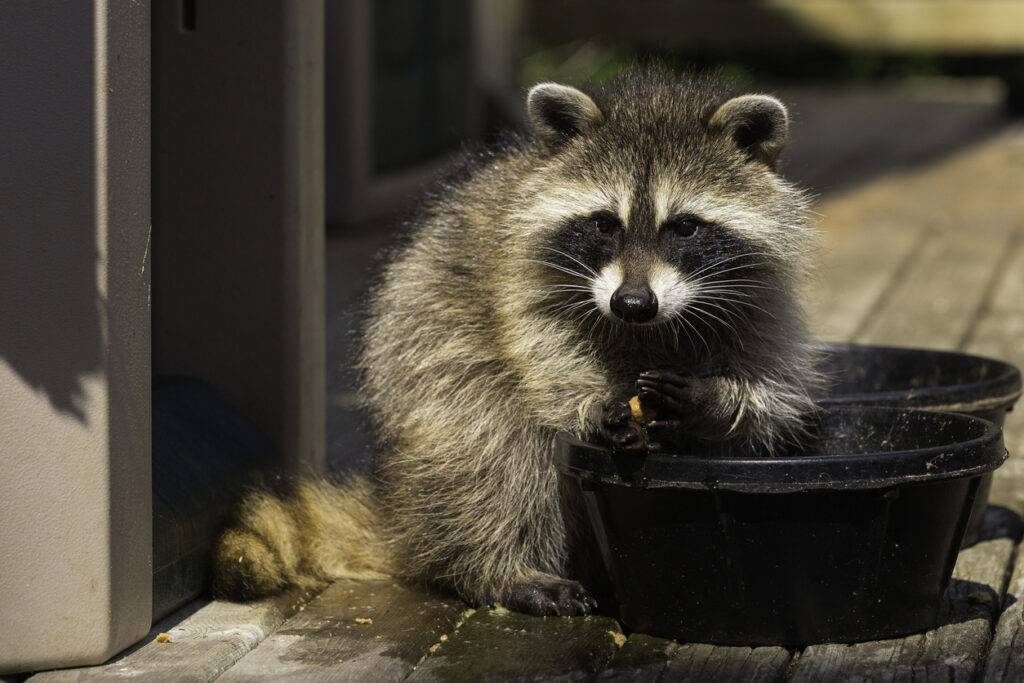
Urban raccoons have adapted to life in cities, much like foxes. While they still enjoy natural foods like fruits and insects, a significant portion of their diet in urban areas comes from human waste. Rummaging through garbage cans is common, and these animals quickly snatch up discarded fast food, pet food, and even scraps from compost bins.
Interestingly, urban raccoons eat more human-related foods than their rural counterparts. This includes bread, leftover pizza, and almost anything else they can find. Their scavenging behavior makes them a common sight in cities, where they enjoy abundant, easy-to-access food.
Why do Raccoons Eat Trash?
Raccoons are very opportunistic animals that will take advantage of the easy meals that can be found in a garbage can. Raccoons have dexterous hands that are capable of opening lids on trash cans and grabbing out whatever leftover food that they crave. When compared to foraging for food in the woods, the easy meal offered by trash cans means burning less energy for the raccoon and is the clear choice for them.
Do Raccoons Eat Chickens?
Given the opportunity, raccoons will attack and eat chickens. Raccoons will also eat any chicken eggs they can get their hands on. Raccoons are skilled climbers and can find ways of getting into chicken coops that are not secured properly. Once the raccoons know that they can get access to chickens and eggs in the coop, they will continue to come back for more.
Do Raccoons Eat Mice?
Although not as common as other food sources, raccoon will prey upon mice, voles, shrews and even small rabbits. In many instances raccoons will eat already dead animals, but raccoons are opportunistic animals and will prey upon live rodents also.
Do Raccoons Eat Cats?
Raccoons have been known to occasionally attack small kittens, but adult cats typically are not bothered. While small kittens are defenseless if alone, adult cats have claws that raccoons know they are no match for.
Why Do Raccoons Wash Their Food?
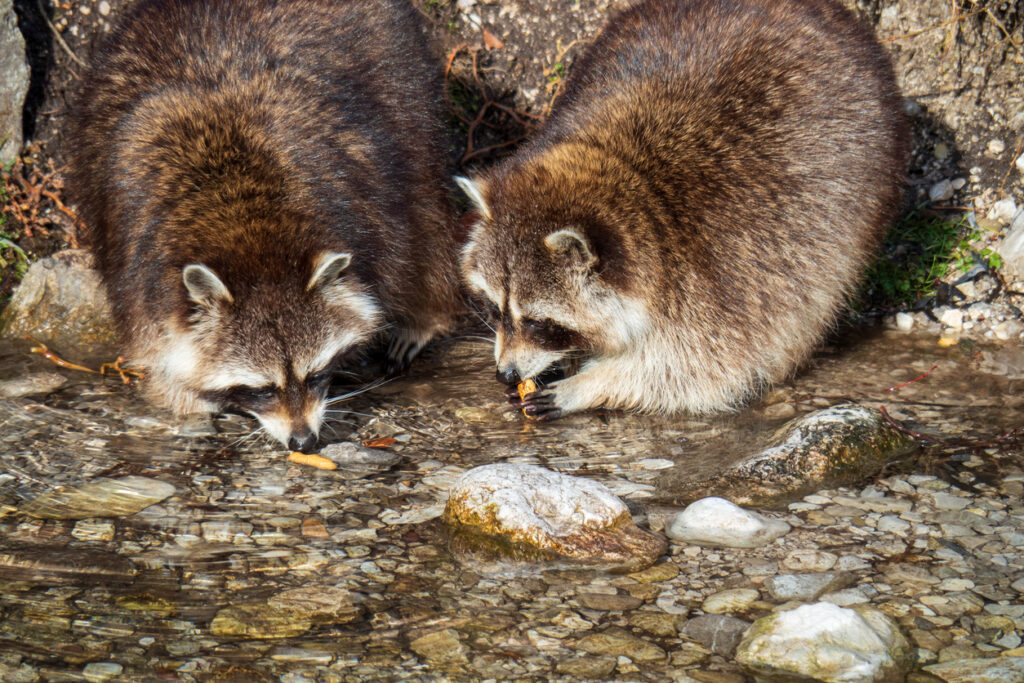
One of the most intriguing behaviors associated with raccoons is their habit of “washing” their food. Many people have seen raccoons near water, dipping their food into it before eating. But why do raccoons wash their food?
There are a couple of theories behind this behavior. Some experts believe it’s a way for raccoons to enhance their sense of touch, allowing them to identify objects better. Raccoons have highly sensitive paws with thousands of nerve endings, and wetting their paws may improve their tactile ability, helping them feel the texture of food more precisely.
Another theory is that raccoons originally evolved this behavior to wash away dirt and debris from their food when foraging in rivers and streams. In rural areas, raccoons might clean their crayfish or fish before eating, but in urban settings, they continue this behavior even without washing their food.
Yes, raccoons are primarily nocturnal creatures. They are most active at night, which allows them to avoid many of their natural predators and scavenge or hunt under the cover of darkness. Their night-time activity also explains why people often spot raccoons rummaging through garbage bins after sunset.
Raccoons have excellent night vision, which helps them navigate and hunt in low-light conditions. Their nocturnal habits make them well-suited for suburban and urban environments, where they can scavenge for food without much human interference. Although they are most active at night, raccoons are sometimes seen during the day, especially if food is scarce or if they feel safe enough to venture out.
Fun Facts About Raccoon Eating Habits
● Food Caching: Like foxes, raccoons also cache food when they have more than they can eat. They’ll store excess food in safe locations to eat later.
● Dexterous Paws: Raccoons are known for their skilled paws, which they use to manipulate and handle food precisely. This allows them to open jars, lids, and even doors!
● Garbage Guzzlers: Urban raccoons are notorious for their ability to break into garbage cans. Their intelligence and problem-solving skills make them experts at accessing human food.
Raccoons are fascinating creatures with an adaptable and varied diet. Whether they’re foraging in the wild or scavenging in the city, these omnivores make the most of their surroundings. Their habit of washing food and their nocturnal lifestyle add even more intrigue to their behavior. So, the next time you spot a raccoon in your neighborhood or near a water source, remember—you’re witnessing a highly skilled survivor who can adapt to almost any situation.
- What Do Squirrels Eat? Learn About Their Diet and Winter Survival - October 14, 2024
- What Do Raccoons Eat? Discover Their Diet and Eating Habits - October 6, 2024
- What do foxes eat? - October 5, 2024


